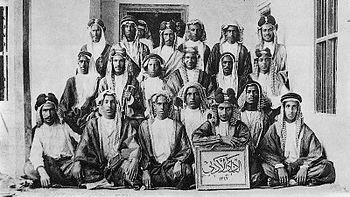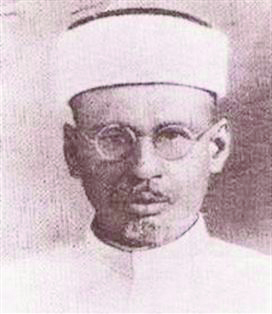
By Dr Ayed Ateeq Al-Juraid - Head of the Intellectuals Voluntary Team in Kuwait
Since its inception, the Kuwaiti society has followed the ideology of moderation. The values of Islam are still the prevailing traits of social life, such as cooperation, brotherhood, love, charity and justice. One of these good values that Kuwaitis adopted was "musabalah", which was trading and exchanging goods between the people of the city and those of the desert (Bedouins). Word of mouth was the contract that bonded them.
As Louis Alexander described: "The spirit of cooperation had a great impact on the social cohesion of the Kuwaiti society and its property. In addition, Kuwaiti awqaf (endowments) were for the public equally." Foreigners who lived in Kuwait described how wonderfully moderate Kuwaitis were.
One of them was Pennings, a physician at the American Mission Hospital, who wrote about his impressions during his work in Kuwait in 1915: "We must say that Kuwaitis firmly adhere to the teachings of Islam. When you take a walk by the sea, you will see men performing their prayers; even children perform their prayers in a solemn way that I have never seen before. Also, mosques are crowded with believers during the five times of praying. Sometimes I walk between the alleys where I hear religious reciting. People do their religious duties righteously."
He added: "This does not mean that Kuwaitis are extremists, having backwardness, having no religious tolerance or refusing to coexist with people of other religions." What visitors to Kuwait said and wrote proves and gives a clear picture of the Kuwaitis' 'nature'. The main impetus behind these deep-rooted values of the Kuwaiti society goes back to many important reasons, some of which were Kuwaiti scholars who implanted these values and reinforced them in the Kuwait society.

Most scholars had religious knowledge. The most prominent was Sheikh Abdul Aziz bin Ahmad Al-Rashid, who drew attention to the problem of extremism and the importance of moderation in one of his lectures he gave at the Islamic forum in Bahrain in 1929. He also discussed the issue of true reform. Rashid found this was a real problem, which confused people and needed clarification to avoid extremism.
"It is not wise to be extreme with those whom we disagree with in matters that bear more than one religious opinion (ijtihad) as regards lawfulness and unlawfulness or to boycott them, considering them as disbelievers," Rashid said.
"We should be open-minded with those whom we disagree with, and argue with them wisely. We should kindly persuade them as Allah the Almighty commands in the Holy Quran. Our religion never commands us to be harsh and cruel," he added.
"We are in severe need to have Muslims who are aware of these frightening currents which threaten us and we all have heard of, hoping that Allah the Almighty may stop them and protect Muslims from their evils". On reading the script of this lecture thoroughly, we find that Sheikh Abdul Aziz Al-Rashid drew attention to the importance of moderation and its status in Islam. He worked hard at boosting this value inside and outside Kuwait.
He also lectured at the Al-Khalifiya Guidance School in Muharraq in Bahrain in Feb 1929. He advised his students to be moderate in their sayings and actions. He also asked them to be cautious of what they receive from Western customs, knowledge and sciences in a way that they take what is beneficial and reject what contradicts their beliefs.
Sheikh Abdul Aziz Al-Rashid spent most of his life meeting scholars and men of letters in different countries during his visits to Singapore, Indonesia and India. His visits aimed to learn about their way of life, knowledge and literature, as well as to what extent they are modernized and advanced. He introduced the summary of his visits to his readers through his "Magazine of Kuwait". In addition, he gave fruitful lectures about tolerance of Islam and implanting the values of virtues.
Rashid's viewpoint was to take whatever invites towards moderation and respect Western achievements in all fields. He used to say: "We want moderation and tolerance to prevail in order not to finish off our righteous religion, virtues and good manners by extremism. These values made us master the world. We are certain that those who are righteous, virtuous and patriotic will not be pleased to ruin these values as long as they are not timid."
Rashid's viewpoint of culture and fine arts was: "There are no obstacles or problems that can prevent us to look for or study fine arts as well as Western culture if they go with our religion, morals and environment, whether in education, regulation or laws." In this concern, Rashid mentioned that he would urge Kuwaitis to adopt moderation in their writings about culture.
He also had a viewpoint with regards to modern theories: "He is wrong who thinks that all modern theories are atheistic ones and contradict Islamic teaching. Our early scholars had opinions in accepting or rejecting them. This ignorance stems from not knowing the clear essence of Islam and not reading their bright opinions."
In Kuwait, Rashid had a good role in educating the youth and teaching them moderation and tolerance. In a lecture he gave on the occasion of opening the Literary Club on the 24th of Ramadan, corresponding to April 30, 1924, Sheikh Abdullah Mohammed Al-Nouri said: "Al-Rashid gave two lectures. The first was about the important role of youth in the era of Prophet Muhammad (PBUH) and how Islam depended on the bravery of our Prophet's young followers.
"Al-Rashid believed in the youth as leaders of tomorrow and the main contributors in building their country. He thought that directing them rightly can work miracles. In his lecture, he focused on the constructive role of youths in conveying the teachings of Islam all over the world."










